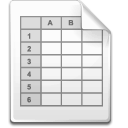Difference between revisions of "Main Page"
Jump to navigation
Jump to search
Kevin Dunn (talk | contribs) m |
Kevin Dunn (talk | contribs) m |
||
| Line 70: | Line 70: | ||
|- | |- | ||
| 5. [[Design and analysis of experiments (2013) | Design and analysis of experiments]] | | 5. [[Design and analysis of experiments (2013) | Design and analysis of experiments]] | ||
| align="left" | [[Image:Nuvola_mimetypes_pdf.png|20px|link=Media:2013-4C3-Overheads-Design-and-analysis-of-Experiments.pdf]] [[Media:2013-4C3-Overheads-Design-and-analysis-of-Experiments.pdf|PDF]] ( | | align="left" | [[Image:Nuvola_mimetypes_pdf.png|20px|link=Media:2013-4C3-Overheads-Design-and-analysis-of-Experiments.pdf]] [[Media:2013-4C3-Overheads-Design-and-analysis-of-Experiments.pdf|PDF]] (05 Apr, v68) | ||
|- | |- | ||
| 6. [[Latent variable methods and applications (2013) | Latent variable methods and applications]] | | 6. [[Latent variable methods and applications (2013) | Latent variable methods and applications]] | ||
Revision as of 18:59, 5 April 2013
Statistics for Engineers: CHE 4C3/6C3
| Administrative | Class materials | ||||||||||||||||||||||
|---|---|---|---|---|---|---|---|---|---|---|---|---|---|---|---|---|---|---|---|---|---|---|---|
|
|
| Assignments, projects, exams | Course calendar | ||||||
|---|---|---|---|---|---|---|---|
|
|



